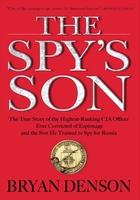These days the world seems to be an angrier place than it used to be. Let's face it: we're stretched in a million different directions, yet the world is getting smaller, more interconnected, and our relationships are rapidly changing. We used to compete against the business across the hall or across the country; now we must think about a global economy. Social media has provided a platform for anyone to express anything and everything they want and, democratically speaking, that's a good thing. Yet the sheer volume of it, the unfiltered nature of the content, and the anonymity available on these platforms create echo chambers for anger and hurtfulness to be exacerbated. This stress can generate an emotional reaction, and sometimes we choose anger over other emotions so that we don't appear vulnerable. We often use anger as a defense mechanism to get us through life's daily battles. As we're getting angrier, however, we can become less able to work together-to create social change or just to get along in the office. This anger can close us off from one another.
OUR ANGER PROBLEM
Anger, rage, fury-whatever you want to call it-is an emotion inherent in all people. Like other human emotions, we have the capacity for anger for good reason. Sometimes, it's okay to be furious. When you're confronted with a truly frustrating reality, the most useful thing you can do is to figure out how to use that anger: do you suppress it or find a way to use it to your advantage? Anger is something that you sense, that you legitimately and justifiably experience in the face of injustice and in moments when anger is called for. There are moments throughout U.S. history when righteous fury has been the source for creating positive, necessary, and strategic social change: Martin Luther King Jr. and the civil rights movement, Gloria Steinem and the fight for women's rights, the Stonewall riots and the struggle for LGBT equality. In all of these instances, constructive anger has been used as the fuel to build, not destroy.
The key is to understand in ourselves and in our communities when anger can be a productive resource or a destructive one. If you want to make change happen, use your anger as a gift, not a curse. Take the 2016 presidential election cycle, one filled with very different characters, from very different backgrounds, on opposite ends of the political spectrum who tapped into Americans' collective anger. They acknowledged it and fed it back to people in a way that served only to elevate and amplify the anger. The three prevailing voices in the 2016 presidential election cycle (that of Senator Bernie Sanders, real estate mogul Donald Trump, and former Secretary of State Hillary Clinton) addressed what each candidate perceived as voter anger. Throughout their campaigns, their messages reflected back the cause of Americans' anger, what each candidate believed voters were feeling.
Senator Sanders took the mantle of the Occupy movement and engaged voters with his message that a tiny wealthy minority has all the power, that the economy is rigged, that it's stacked against most Americans. He created a have-and-have-not dynamic, where his scapegoat was Wall Street, wealth, and high-income earners. Sanders gave validation to the have-nots for their anger at the haves. And while the anger and the sentiment he reflected was certainly warranted, he was never able to channel that rage toward a pragmatic or believable outcome. His own anger left doubts in the minds of too many voters about his ability to work as president in a collaborative way across party lines toward any solutions that had the possibility of becoming reality.
Donald Trump, on the other hand, did throughout his campaign what the United States has seen historically and politically in times of economic uncertainty. He tapped into the well of rage from America's working middle class, particularly white men who feel that life is unfair. Trump introduced something that is foreign to them (the "other"-in Trump's case, immigrants), something unknown that gives them someone to blame. He reflected a more dangerous point of view: You're angry because life hasn't worked out the way you thought it would. The country doesn't look the way it used to. It's being overrun by immigrants who are taking your jobs, bringing the economy to its knees, and threatening your personal safety. Where Trump and Sanders are similar is that they recognized this well of anger throughout America; they mirrored something cathartic, a message that made people feel validated. In Trump's case, his message made them scared; in Sanders's case, it made them hopeful. Yet in both cases, the candidates' messages did not really do anything except regurgitate anger for the sake of anger.
The third point of view, which gets to the crux of this book, is that of Hillary Clinton-the only presidential candidate who channeled Americans' collective anger toward a realistic outcome. Throughout her campaign, she showed that she understands people are angry about injustice, but instead of reflecting that frustration back to Americans, she channeled the anger and used it to create a platform that provided people with a hopeful future. She gave them a sense of confidence that they can get to a better place. The outcome of the 2016 election will depend on whether voters are able to channel their anger and choose a candidate who works for them or are blinded by their anger and choose a candidate who works against them. The successful candidate is almost always one who is able to see that anger (passion) is a gift that can be channeled toward a greater good (creating positive change).
TURNING ANGER AROUND
Instead of shutting things down, however, anger can be used in another way. It can be the energy source that propels us to overcome systemic social injustice or the fuel that helps us to get what we want in a personal or professional situation. Processing anger and channeling it toward a positive outcome is a multistep process. The first step involves determining whether anger is even an appropriate response to something. If it is not valid, then you will learn what the appropriate sentiment, and course of action, should be. For example, if we demand that our legislative leaders take immediate action on an issue that is really important to us, but we hear that Congress won't be back in session for several weeks, that response-and that delay-is hardly a reason to burn down the buildings.
But if your anger is justified, the next step is to determine whether to express that anger and, ultimately, to what extent and how. When pressing for social change, you regularly meet resistance, which almost always results in justifiable anger. Your path forward depends on channeling that frustration and figuring out how to use it to get the outcome you want. In interpersonal relationships as well as in professional settings, there are many examples where anger is not a valid response. In these situations, it is best to consciously restrain your emotional reaction. Once you've stepped back a bit and taken anger out of the equation, and had an honest conversation with yourself and perhaps with your allies, you will realize that the decision you make about what to do with your passion will be the right one.
The key to navigating through anger and your initial emotional response to resistance or adversity is to be honest with yourself. If you can't do that, find people around you who can help. For instance, if you asked your boss for a raise, and she responded that she'd been meaning to talk with you about your poor performance, you might react to her criticism with defensive anger. You may feel that you and your boss are far apart in terms of evaluating your work. But who is right? If she is, then your anger toward her is misplaced. If you can't be honest with yourself and get past that anger, you're not going to chart a productive course forward. Sometimes trusted friends and coworkers can help you understand how you're viewed at work, so you can figure out how to move in a positive direction. However, if you find yourself in a situation where you've done the work and determined that your anger is justified, you still have to learn how to channel that frustration toward a positive outcome. Whether it's finding common ground, overcoming differences, or being able to listen strategically without the haze of anger filtering what you hear, we all have the potential to change any situation into a win. That's what this book is all about.
On April 29, 2009, the U.S. House of Representatives passed the Matthew Shepard and James Byrd Jr. Hate Crimes Prevention Act (HCPA). The passing of the HCPA meant that thereafter the category of "hate crime" would cover not only crimes in which a victim's race, color, religion, or national origin were a factor but also those relating to a victim's actual or perceived gender, sexual orientation, gender identity, or disability. For the first time, gay and transgender individuals would have the same legal protections as everyone else.
In this case, protection for all came at someone else's tragic expense. Eleven years earlier, in 1998, two horrific hate crimes had been committed. Matthew Shepard, a young man living in Laramie, Wyoming, was tortured and killed simply because he was gay. James Byrd, an African American man, was singled out, tied to the back of a truck, and dragged to his death. I had the privilege of sitting in the congressional gallery alongside Judy Shepard, Matthew's mother, as the House of Representatives passed this landmark piece of legislation. She, along with her husband, Dennis Shepard, had spent the past ten years advocating, lobbying, and speaking out on behalf of this legislation that would give local law enforcement agencies throughout the country the tools they needed to more effectively investigate and prosecute hate-based crimes.
No one had been more courageous or committed to seeing this bill become law than Dennis and Judy. With their justifiable rage, through their grief, they saw that the perpetrators who had murdered their son went to jail for life. Then they took the next step and channeled their anger into action to create lasting social and legislative change. Judy wanted to ensure that no other American family would ever experience the pain and suffering hers had. They started the Matthew Shepard Foundation to replace hate with understanding, compassion, and acceptance. Working directly with the Human Rights Campaign, they toiled to get a federal hate crimes bill passed into law. The Shepards walked the halls of Congress for ten years trying to garner support and change the hearts and minds of legislators. Beginning in 2005, I stood with them. We worked together closely, and it was a true honor to be with Judy on the day we realized we had the votes to pass the bill through both the House and the Senate. President Obama, who had worked alongside us for the bill's passage, was committed to sign it into law.
Before there can be a vote on any piece of legislation in either the House or the Senate, all sides (proponents and opponents) are given time to debate their various points of view. On that April day we sat through an entire morning of floor debate in the House. Although we had heard some misguided resistance to this bill over the years, most of the speeches that day were supportive. In their remarks many members of Congress paid tribute to Judy and her tireless work. I distinctly remember civil rights icon Congressman John Lewis commenting on Judy's steadfast dedication. Eventually Congresswoman Virginia Foxx of North Carolina chose to speak, in opposition of the bill. The fact that Matthew Shepard was murdered because he was gay, Foxx said, was simply a hoax. Everyone knew, she went on, that Matthew was the unfortunate victim of a robbery. Those of us seeking to pass hate crimes legislation, she explained, continued to perpetrate this hoax simply to gain support for the bill. She rambled on about how nothing that had been reported about the incident was actually true.
As I processed Foxx's hateful words, I was in complete shock. All of her claims were categorically false. I don't know if it was the adrenaline from the emotional roller coaster we all had been on leading up to this moment, but Foxx's comments enraged me like nothing had ever upset me before. Shaking, I turned to Judy. I thought we should put out a statement refuting Foxx's comments and get other members of Congress to immediately take to the floor and do the same thing. I was rising out of my seat with anger when Judy put her hand on mine. Quietly but firmly, she spoke: "This discussion isn't even happening. What's happening right now is that we are on our way, after eleven years, to winning. That's what is happening. Let's not let our anger or our emotions get in the way of our true goal. Our job is to see this bill through to victory."
Judy was right, of course. We had the votes we needed. Once the clock on the floor debates ran out, the bill would pass no matter what lies Virginia Foxx spewed. Our message in response would be to shine a light on the supporters of the bill. We would not give one more minute of airtime to the bigoted and misguided rhetoric of Virginia Foxx. She took her seat and was followed by Sheila Jackson Lee, a congress-woman from Houston and a civil rights pioneer. I expected that Congresswoman Lee would counter Foxx's argument, but she didn't even acknowledge it. Instead, she placed both Matthew and James Byrd as great civil rights pioneers in the tradition of Dr. Martin Luther King and Bayard Rustin. Like Judy, she channeled her anger over Foxx's vitriol into something positive. Her uplifting speech made all the people in the gallery forget about Foxx entirely. As we predicted, the bill passed in the House with a final vote of 249-175. The Senate went on to pass the bill in the fall, and on October 28, President Obama signed the HCPA into law. I was there. He commented to all of those attending that he had promised Judy and Dennis Shepard this day would come.
I recently spoke to Judy about our experience of getting HCPA passed. I thanked her for the lessons she taught me and told her how much I admired her grace during some very challenging moments. She reminded me that her grace and inner will didn't always come to her so easily. In the early days, just after Matthew's death, when she began visiting members of Congress and lobbying them, she was often overwhelmed and felt defeated by the intolerance and ignorance that some displayed when discussing hate crimes legislation. She wondered aloud to members of HRC's legislative staff whether she was cut out for the daunting task of garnering support for the bill. She often heard offensive and maddening comments. These conversations frequently brought out some of the worst vestiges of antigay sentiment. However, with the help of such brave allies in Congress as Senators Ted Kennedy of Massachusetts and Gordon Smith of Oregon, Judy was able to channel her anger into action. She never lost sight of her goal.
When we won and the bill was passed, Virginia Foxx's chief of staff called me. "Look, Joe," he said. "My boss wants to find a way to apologize to Judy Shepard. How can she reach her?" I called Judy and her response was clear. "To me, she doesn't exist," Judy explained. "Those statements don't exist. None of that exists. I will not be talking to Virginia Foxx. What will remain in people's memory is Sheila Jackson Lee's speech and President Obama's remarks as he signed the act into law. Those events are all that exist." I realized that Judy Shepard and Sheila Jackson Lee were wiser than me; they knew how to channel their anger and keep their eye on the bigger prize, the signing of the HCPA. While both women were smart and strategic, it didn't mean that they weren't filled with anger, even in that circumstance.
This was the moment when I understood that the emotion of anger is a reality in all of our lives, and it has the potential to be a great gift. Anger was the primary emotion Judy had been carrying for over a decade, yet it had become a source of energy that kept her moving forward. For Congresswoman Lee, anger was like an adrenaline force, compelling her to be nimble and fast on her feet as she spoke so eloquently off the cuff. She never addressed Virginia Foxx; rather, she spoke above and around Foxx to get her point across. She channeled her fury toward attaining a positive outcome.
ANGER IS PART OF THE JOB
The ability to resolve conflicts and get what you want without causing ill feelings, disparaging others, or creating drama is the single most important trait for success in any workplace. It's an indicator of successful relationships, both professionally and personally. It's not enough to get your job done; it's how well you play with others that really counts. When we engage with others, there is the possibility that something they do or say will anger us. There are the small insults, the large transgressions, the feelings of being left out, or various emotional states of frustration, disappointment, and rage. In the heat of the moment, we tend to respond with hostility, blame, victimhood, or whining. These counterproductive reactions are unacceptable in the workplace because they are "conversation enders"-that is, they will not advance your argument or move the needle toward getting you what you really want.
A hostile reaction assumes that you're going to bring the offending person around to your way of thinking by hammering home your point. In other words, you are meeting anger with anger. This strategy is without merit in most situations. For example, if I were engaged in a formal debate, it is not out of the realm of possibility that I could win over my opponent to my way of thinking by providing well-researched facts. Yet heated discourse and argumentative conversation with a colleague or supervisor typically does not have that effect. In fact, there aren't many instances where an intense argument, whether it's about politics or cleaning up the break room after lunch, ends with somebody thoughtfully saying, "Wow, he directed so much anger at me that I completely concede the point. Joe is right."
In a formal debate some might strategically provoke their opponent, intentionally trying to anger them because an angry response is an unproductive response. When you're coming at someone with hostility, you're inadvertently putting them on the defensive, no matter how right you are. This strategy invariably entrenches an opposing faction into their position. In the best-case scenario the person you are attacking is calm enough to respond and explain their position. In the worst case, however, you have ratcheted up their anger. If this happens at work, you may possibly be fired. Either way, this strategy of provoking an opponent rarely works to your advantage.
Being wrongly accused of something is another situation where you may react with anger. You may try to resolve the accusation by placing the blame on someone else. Yet no one wants to hear anyone say, "That wasn't my fault." The truth is, when we think whatever bad thing happened wasn't our fault, there's a chance that it might have been. While there are real victims in the workplace of abuse or harassment, there is a possibility that you might have been at fault, or you might be viewing the situation in a completely wrong-headed way. If your natural reaction is to blame someone else-"I did my job; Joe didn't file the paperwork correctly" or "He hates me and I don't know why"-try to leave just the tiniest room for doubt. If your boss says, "I don't think you're committed to this job in the way you need to be," be open to the possibility that you may have in fact given that impression. It may not be true: perhaps you are committed to the job, and you may be very passionate about your work, but for one reason or another that passion isn't coming across in a way others see.
There may be instances where none of this is the case, where you actually have a sexist, bigoted boss, and you're the most brilliant person to walk through the door, yet she is going to bring you down. I'm not suggesting that every boss is always right. However, before you cry "victim," at least consider her point of view before you play the blame game. You need the maturity and the self-awareness to pause and ask yourself the question, Does the possibility exist that I am contributing to the problem in some way? Most often, the reality of the situation is typically somewhere in the middle.
Whining is a manifestation of blame. My friend Tom's wife is a classic un-self-aware whiner. Since I've known them, she has had three jobs and she is always working for "the worst boss." Nobody ever utilizes her talent, she complains. But she never pauses to stand in another person's shoes and ask, "Do I own any of my problems?" A typical office whine is: "Management never thinks about including me in the conversation. They have a meeting and they bring lots of other people together, but my boss forgot to include me again." I can assure you, it is rarely the case that the boss achieved his or her higher level by not recognizing the extraordinary talent in the office. There are certainly times when some managers don't give young people the deference that they should. And it is important to bring young, diverse voices to the table. However, the invitation is usually extended to those whose views will add to the conversation, not to those who complained that they weren't included last time.
USING ANGER AS MOTIVATION
When things don't go our way, it's easy for someone to say, "Don't be angry." But, honestly, that isn't a realistic expectation. Few of us live completely Zen lives. More important, we need our anger to motivate us to take action, create change, and get more out of life. It's the discipline of putting our passion into action that helps us make the impossible possible.
When it comes to deeply interpersonal relationships, we are often counseled to not react with anger, but rather to be vulnerable and to express our hurt. This strategy might be effective in a relationship, where it's okay to say, "What you said hurt my feelings." However, it doesn't work in the office or when you set out to create sweeping systemic social change. Unlike personal relationships, where intimacy is achieved by being vulnerable, a professional, interpersonal dynamic is completely different. Office relationships are more transactional, the goal of which is for workers to demonstrate their value and in the process achieve self-satisfaction. The key to forming effective relationships at work is to stifle the instinct to respond with anger in a combative way and instead to find the most productive line of communication.
The instinct to react with anger can be difficult to overcome. But if you view every interaction with an eye toward getting what you want, using your anger productively can become one of the most powerful tools you have for creating enduring change. In Judy Shepard's case, for example, she used her fury positively to propel her cause. She was completely focused on the win and kept her eye on the prize. My immediate reaction was to lash out, but Judy used her rage as the energy source that powered her through eleven years of tireless lobbying. I imagine that every time something like the Virginia Foxx incident happened, Judy had a flash of anger. It's not that she had conditioned herself to no longer be upset, to no longer feel fury and despair about losing her son. Rather, she had the discipline to take the anger and put it somewhere else to be used constructively. Because she and all of us were ultimately able to keep calm and carry on, the hate crimes act victory was just the beginning of a new chapter in the fight for LGBT equality. This victory became the stepping-stone to HRC repealing Don't Ask, Don't Tell (DADT) and, ultimately, the Defense of Marriage Act (DOMA) and achieving full marriage equality for all Americans.
REPEALING DON'T ASK, DON'T TELL
When HRC stepped up its lobbying against the Don't Ask, Don't Tell policy following our hate crimes victory, it was the first time I heard utter indifference directed toward gays and lesbians from members of Congress. I saw how many members of Congress are motivated solely by what their constituents think (or what they think their constituents think). Already angry that LGBT people couldn't openly serve in the U.S. military, I became enraged at the indifference that some members of Congress showed about doing what I thought was so important. It was never easy for me to hear a representative say, "I don't care if gay men or women serve in the military; it's not my issue. I'm only concerned about keeping my seat in Congress, and what my constituents want." I didn't understand how they could be so unresponsive to such a key issue. I would have understood their position more if they had told me: "I have a very strong point of view about this, and I don't think that gay men and women should serve in the military." At least that was an opinion.
When I heard such a response, my instinct was to argue the point. I couldn't say, "What kind of an idiot are you?" That kind of conversation-ending hostility would get me nowhere. These congresspeople weren't interested in engaging on the issue, so I couldn't say, "Let me explain why it's important that gay people serve in the military." Putting my anger aside, I really listened to what they were expressing at the heart of their resistance. They were revealing that they just didn't care. HRC's legislative director, Allison Herwitt, kept reminding me: "You can't lose sight of what your job is. We're here to repeal this awful policy." She taught me that we could build on small victories if we keep our eyes on the ultimate goal. With that in mind, I channeled my anger, took a deep breath, and focused on the long game.
"All I care about is what my constituents think," I heard over and over again from the legislators. "All I care about is doing the thing that is going to ensure that I don't lose my seat." I needed to better understand this apathetic response. Once I realized that it wasn't personal-i t was about their constituents-we go to work. "Fine," the HRC team decided, "we'll go out to your district, your state, and we'll do the work of showing you that your constituents want you to vote with us-or, at the very least, that they don't care if you vote with us." From this, I learned that if you can win on the merits of the first interaction, every following interaction is likely to be a better, more effective one. This strategy transformed the way we lobbied. For example, even when I was angry about legislators' indifference, we could eventually get congressional representatives to a "yes" vote. Instead of wasting time arguing around the merits, we would come to meetings with our polling numbers. "You need to vote this way," we'd explain to an opponent, "because that's what your constituents want you to do."
Once the representatives saw the polls, they would often respond affirmatively: "I didn't care whether gay people serve in the military. But this meeting was a positive experience, getting to know you gay people, and working with very different people that I never knew before. Maybe I'm open to the idea that gay people shouldn't be discriminated against at work either." These conversations changed their perspectives, and ultimately we garnered just enough votes to repeal the DADT legislation. Better still, at the next meeting, the same representative would tell me, "I voted with you and I'm stunned that my constituents didn't throw me out of office." These members of Congress were then emboldened to open the door to more positive change. They asked, "Okay, what's next on your agenda?"
WHEN ANGER IS EXPECTED
Sometimes the people you represent expect anger. The community is looking to their leaders who advocate on their behalf to validate their frustration. By validating it, leaders assure their constituents that their rage is understood and that they are taking the anger and using it toward advocating for change. This is why former President Bill Clinton was widely seen as such an empathetic leader. When he said to the American people, "I feel your pain," we believed him. We understood that he carried our collective pain with him. When people think an angry, forceful, combative pushback is warranted and you don't deliver it, you've let down your constituency. When I was the head of HRC, for example, I was often criticized for being less than passionate in the expression of my anger. There were many people in the LGBT movement who approached everything with a combative attitude, and there was all this pressure for me to demonstrate my anger in a specific way. Many wanted me to express the community's collective anger, but I chose to channel it into less hostile and more productive statements.
Yet there were other times when some suggested that my speeches came across as if I was too angry. Early in my HRC tenure, I was counseled: "Be careful of using too much angry rhetoric." Striking the right balance proved difficult. I tried moderating my tone and sounding less combative. This tactic worked in terms of finding more common ground with some in the LGBT community, but it left others feeling like there was no passion behind my words. I had to learn that different settings and situations demanded different messages. There would be many ways of reflecting back an audience's anger, but choosing the right tone to match the specific audience was a constant challenge. There are times when you can rail against injustice in a very public, cathartic way. This validates your feelings about your point of view, but may merely make you feel better in the short term; it usually doesn't have the effect of creating the lasting social or legislative change you seek.
In the LGBT rights movement at the time, some members of the community strongly believed that during every interaction, the opponent should feel our anger, and our only strategy should be to beat them on the actual merits of the point. The line of thinking was that if you fail nine times out of ten, but you win on one occasion, you've made real progress because you've changed one heart and one mind. However, I believed that we didn't have the luxury of time for that strategy-and I wasn't interested in losing the other nine votes. Some argued that my strategy was manipulative, the ugly business of getting the sausage made, because sometimes you're trying to get people who don't actually ever change their mind about LGBT rights to vote with you. I disagreed: we had to win any way we could. The victories were vital in the process of opening the door to creating a relationship with many of these members of Congress. Working this way allowed us to eventually change their hearts and minds.
I learned that simply saying that something has made you angry or offended really doesn't do much to change any situation. In fact, when someone says something that angers you, they often do so knowing full well what they are doing. To tell them that they've made you angry is not likely to get them to change their point of view. Instead, it is much more powerful to respond in these cases in a way that makes them understand that angering you was a mistake. Let them know that, rather than upsetting you, their anger has provided the energy and the drive you needed to win your point. In her testimony for the hate crimes legislation, for example, Congresswoman Sheila Jackson Lee used Virginia Foxx's anger to deflect the oncoming fury and to intensify her own message. Lee made her outrage felt loud and clear that day on the House floor. The strength and the power of her message-and the fact that she completely ignored her colleague's offensive remarks-in and of itself demonstrated just how furious Lee was. But the testimony sent her adversaries an equally important message: "You should think twice before you make those kinds of offensive statements again."
There were times when I was counseled to put my anger aside, be gracious, and just give thanks for something that I felt was a pretty low bar in terms of being deserving of my gratitude. These were the occasions where we would get something tiny. The LGBT community would say, "It's like we're begging for crumbs and we're thanking these people for not very much." For instance, at one point before same-sex marriage became legal, HRC was lobbying to eliminate the federal taxes that same-sex couples had to pay when they received domestic partner benefits. Married couples did not have to pay this unfair tax. A gay radio show host who was interviewing me at the time rolled his eyes when I discussed this tax. "Come on," he pressed, "what can that amount to? A few hundred dollars a year? It should be all or nothing. Forget about taking these crumbs they throw our way that then make them feel like they've done something big for us." Well, unlike this interviewer, I had met many men and women across the country who genuinely could not afford to pay that tax, who chose not to provide healthcare for their partners because of this tax. So while a strategy that led with anger and made clear we wouldn't take anything short of full equality may have felt good to hear on the radio, it did nothing to advocate for people whose economic circumstances were significantly worse than the interviewer's.
If the aim is to get something done, you have to measure the response that elicits the outcome you want against the response that might make you feel good in the short term (like getting angry) but isn't productive. The people who reach their goals are practiced at putting their rage aside and channeling their fury into smart, strategic, measured responses. The cost of leadership, as I learned through experience at the helm of the HRC, means never losing sight of the desired outcome even if it comes at a personal cost. Sometimes winning and the glory and gratitude that come with victory are mutually exclusive.
While working for social and legislative change, I didn't lose sight of my anger, nor did it diminish. Rather, I understood that if I could put the anger aside and meet my opponents where they lived, I would eventually bring them around to my way of thinking by removing the hurdles that existed for them. Channeling my frustration into a strategic plan-by demonstrating to members of Congress that the people who vote for them actually supported what we were working toward-enabled me to come back and fight another day. The positive experience of the first round actually opened their minds to think differently about the circumstances of LGBT people's lives. Next I outline two strategies that can improve the chances of that first round going well.
STRATEGY #1: BE PREPARED
Perhaps the first and most important step in channeling anger toward productive action is simply allowing for the passage of time. Don't react in the moment. Process what you're feeling, breathe deeply, and collect your thoughts. Your initial off-the-cuff response is almost never the most productive route toward a victorious outcome. To confront someone's position that you would like to change, or someone who says something that is so contrary to what you think is appropriate, requires a conscious act of actually pausing, acknowledging your natural emotional and frustrated response, and then identifying the more useful one. You might even have to write down how you really feel and throw out those notes, then clear your head and prepare to respond civilly.
For example, if you asked your boss for a raise or a promotion during your annual review, but your boss responded negatively, you'd be pissed. What if your boss told you: "I can't give you a raise because I think your attitude isn't what it should be. I don't believe you're as committed to the job as you could be." How could your view of your work and his perspective be so far apart? Understandably, your initial response would likely be an argumentative one driven by anger and shock. But if you instead pause after hearing this assessment, putting aside your anger and shock, you could find something to say that might salvage the situation. Take a measured, rational, intellectual evaluation of what your boss just said to you. Your response, more than anything else, needs to be one that acknowledges the boss's perspective. You could say, "Wow, this is news to me. We obviously have very different perspectives. Thank you for sharing this with me. I respect your opinion and am committed to getting this situation back on track so that we can be discussing a raise at some later point." This response demonstrates that you respect your boss's authority and that you are committed to participating in the solution. By responding productively, and less combatively, you've also acknowledged that there will likely be future conversations about a possible raise. You may be wondering, "What about the part where I stick up for myself or make the case that I think I do a great job?" All of that can happen, but only if and when your boss agrees that there is a path forward. When your position is more solid, when you are on a better path toward job security and ultimately a raise, you will be in a much better position to highlight what you have historically seen as your strengths.
If you know that you are going to be in a situation where something could provoke anger, prepare yourself ahead of time. For instance, when I was lobbying Congress with Judy Shepard for the hate crimes legislation, she accepted the strong likelihood that she would hear something that was going to enrage her. Going into a contentious scenario emotionally prepared may be half the battle. Prepare for the process of navigating the situation in a productive way. Expect the anger and prepare to put it aside. Then you can actually hear what is being said, work your way through the rhetoric, process what matters, and find inside yourself the appropriate and most useful response.
You might go into a situation where you are looking for several results, only some of which you'll be successful at achieving. For example, in meeting with your boss, if you ask for three things and he or she agrees with you on only one point, you'll be disappointed. The reasons your boss may give for not agreeing with your other two points will undoubtedly make you angry. But ask yourself, If I wanted three things and I'm going to get one (as opposed to none), is that still a victory? The answer is probably "yes." You lived through the ask to fight another day. You walked away with a positive outcome, which creates the opportunity to go back later and prove to your boss that you deserve the remainder of your requests.
STRATEGY #2: REPLAY WHAT YOU HEARD
The second strategy is put into play in the moment. You have to truly think about what's been said in a measured, thoughtful, intellectual way. Take a step back and figure out what's at the heart of what your opponent (boss, friend, or whomever) is saying. It might be hard to believe, but people had said to my face, "I'm okay with gay people serving in the military, but getting married? Never gonna happen." And this: "You want a raise? I think you're a deadbeat." Even when the vitriol is utterly offensive, try to put yourself in their shoes, then figure out a way to navigate a response that's going to create some movement toward getting what you want. What's at the heart of their disagreement? What do you know about this person? How have you prepared for the meeting? How can you continue the conversation? After all, the most unproductive thing you can do is to end the conversation.
As an advocate of LGBT rights, I carried the fate of many people on my shoulders, including many soldiers who wanted to serve in the military. That inspired me to not lose sight of the goal: I needed a vote count for repealing DADT. Keeping your eye on the desired outcome can be useful in all sorts of settings, particularly true in the workplace, when you have to evaluate your boss's opinion. Ask yourself, Did I just get what I wanted, or did I get enough of what I wanted? Or did I get nothing of what I wanted? Did I go in looking for a raise but now feel like I'm going to get fired? How do I take that anger and channel it into something productive? Discipline yourself to stand in the other person's shoes, to gain some sense of where they're coming from and what is at the heart of their opinion that contrasts yours. If you've asked your boss for a raise because you think you deserve one, and the response is, "You're not committed at all and your future here is uncertain," the truth probably lies somewhere in the middle.
You have to do the work to understand why your boss feels this way. The situation might have nothing to do with you: it may be that another employee is getting a raise and there's no room in the budget, or perhaps the company is having financial trouble. But with a greater level of understanding and a clear picture of your own strengths and weaknesses, you can stay in the conversation, not be combative, and eventually return to the discussion with your boss. One of my favorite rejoinders is, "This is the first I'm hearing of these concerns." This useful ploy brings the other person's guard down. By turning down the volume and having a more measured, thoughtful conversation, you might end up hearing something that gives you an accurate sense of what's really going on and gets you closer to getting what you want.
If you're going to successfully turn these circumstances around (or any other professional situation), you have to be open and honest about your own strengths and weaknesses. This involves strategic listening and overcoming sometimes long-held differences with others that you may not even realize you have. Once you can let go of the anger, you can create a measured, thoughtful, and detailed plan to get what you want. You're now ready to find common ground, which is the necessary first step to closing the gap between two disparate points of view.















